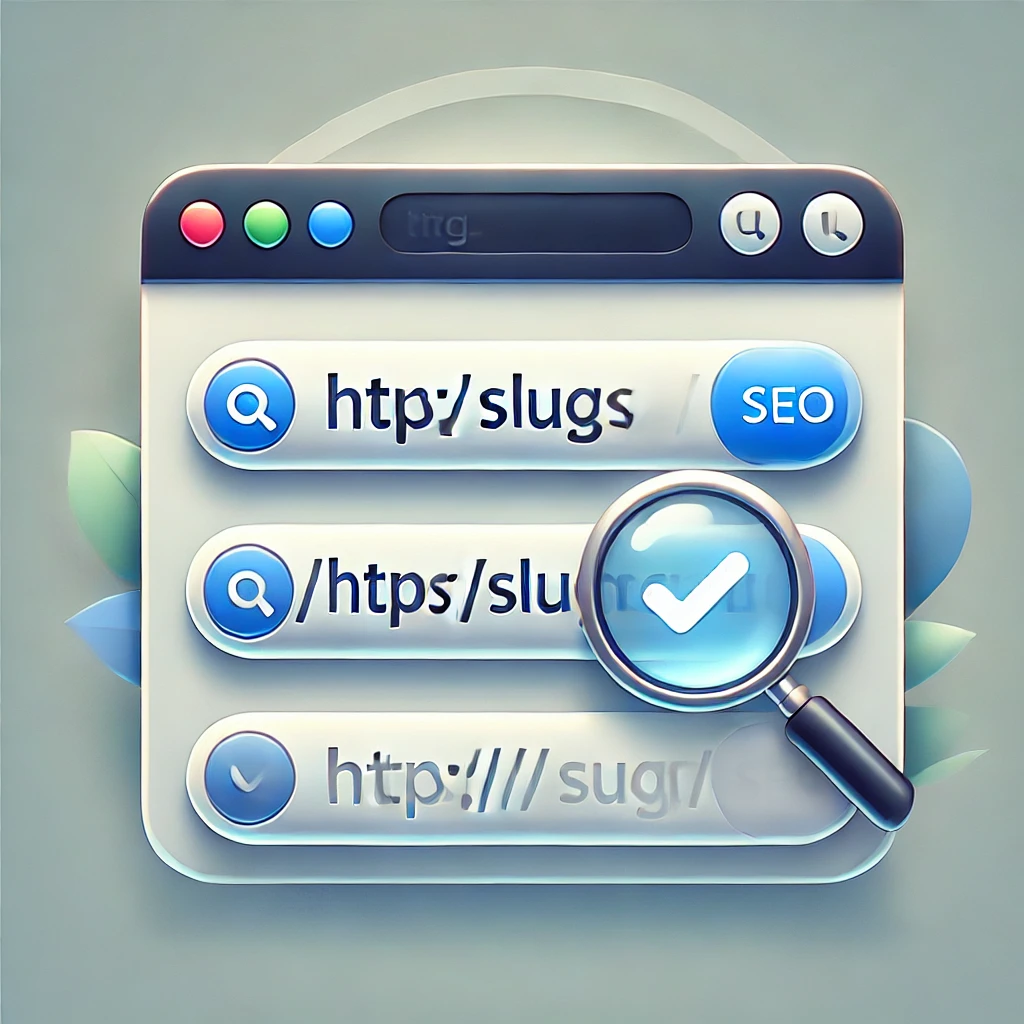Digital Marketing
How to Optimize a URL Slug for SEO Success

In the world of digital marketing and SEO, every detail counts—including your URL slugs. A URL slug is the part of a URL that comes after the domain name and uniquely identifies a page on your website. While it may seem like a small detail, optimizing your URL slugs can significantly impact your website's search engine rankings and user experience.
At Freshlink, we understand the importance of creating effective and user-friendly URLs that enhance both SEO performance and user engagement. In this article, we'll explain what a URL slug is, why it matters, and how you can optimize your slugs for maximum impact.
What is a URL Slug?
A URL slug is the readable part of a URL that helps identify the content of a page. For example, in the URL https://freshl.ink/blog/seo-tips, the slug is seo-tips. It provides a concise summary of the page's content and helps both users and search engines understand what the page is about.
URL slugs are essential for several reasons:
1. SEO Optimization: A well-crafted slug can improve your page's search engine ranking by including relevant keywords that match user search queries.
2. User Experience: A clear and descriptive slug helps users understand what to expect from the page before clicking the link, leading to better engagement and lower bounce rates.
3. Branding: Consistent and branded URL slugs help reinforce your brand identity across different web pages.
How to Create an Effective URL Slug
To optimize your URL slugs for both SEO and user experience, follow these best practices:
1. Keep it Short and Simple
Shorter slugs are easier to read and remember. Aim to create slugs that are concise and directly related to the page's content. Avoid using unnecessary words, special characters, or complex structures that can confuse users and search engines.
Example:
- Good: freshl.ink/blog/url-optimization
- Bad: freshl.ink/blog/this-is-a-post-about-how-to-optimize-urls
2. Use Keywords Strategically
Including relevant keywords in your URL slug can help improve your page's visibility in search engine results. However, avoid keyword stuffing—focus on incorporating one or two primary keywords that accurately represent the content of the page.
Example:
- Good: freshl.ink/blog/qr-code-best-practices
- Bad: freshl.ink/blog/qr-code-best-practices-qr-code-optimization-qr-code-tips
3. Use Hyphens to Separate Words
When creating a URL slug, use hyphens (-) to separate words. Hyphens are recognized by search engines as spaces, making your slug more readable and SEO-friendly. Avoid using underscores (_) or spaces, as they can cause issues with readability and indexing.
Example:
- Good: freshl.ink/blog/landing-page-design
- Bad: freshl.ink/blog/landing_page_design
4. Avoid Stop Words
Stop words are common words like "and," "the," "in," and "of" that don't add much value to your URL slug. Removing these words can help shorten the slug and make it more focused on the main keywords.
Example:
- Good: freshl.ink/blog/email-marketing-strategies
- Bad: freshl.ink/blog/the-best-email-marketing-strategies
5. Make it Descriptive and Relevant
Your URL slug should accurately describe the content of the page. A descriptive slug helps users and search engines understand the page's topic, leading to higher click-through rates and better search engine rankings.
Example:
- Good: freshl.ink/blog/social-media-marketing-tips
- Bad: freshl.ink/blog/page123
Why URL Slugs Matter for SEO
Optimizing your URL slugs can have a significant impact on your website's SEO performance. Here’s why:
1. Improved Click-Through Rates: A clear and relevant slug encourages users to click on your link, as they can quickly understand what the page is about. Higher click-through rates signal to search engines that your page is valuable, which can boost your rankings.
2. Enhanced Crawlability: Search engines use URL slugs to understand the content of your page. By including relevant keywords and structuring your slugs properly, you make it easier for search engines to crawl and index your pages.
3. Better User Experience: A well-crafted slug enhances user experience by providing clarity and relevance. When users can easily understand the content of your page from the URL, they are more likely to engage with your site.
4. Stronger Internal Linking: Consistent and optimized URL slugs improve your site's internal linking structure. When linking between pages, clear and descriptive slugs make it easier for both users and search engines to navigate your site.
Common Mistakes to Avoid
While optimizing your URL slugs, be mindful of these common mistakes:
1. Keyword Stuffing: Overloading your slug with keywords can lead to a poor user experience and may be penalized by search engines. Focus on creating a natural and readable slug that includes only the most relevant keywords.
2. Using Special Characters: Avoid using special characters like &, %, or @ in your URL slugs. These characters can cause issues with URL encoding and may not be properly recognized by search engines or browsers.
3. Ignoring Consistency: Consistency is key when creating URL slugs. Make sure your slugs follow a uniform structure across your site to maintain a professional and cohesive brand image.
4. Forgetting to Update Slugs: If you update the content of a page, make sure to update the URL slug if necessary. However, be cautious when changing slugs, as this can affect existing links and SEO rankings. If you do update a slug, set up a proper 301 redirect to avoid broken links.
How Freshlink Can Help You Optimize Your URLs
At Freshlink, we offer tools and features that can help you create and manage optimized URLs for your website:
1. URL Customization: Freshlink allows you to create custom URLs with optimized slugs that align with your branding and SEO goals. You can easily edit and update slugs to ensure they remain relevant and effective.
2. Link Management: Our platform provides advanced link management features that allow you to monitor and track the performance of your URLs. This helps you identify areas for improvement and make data-driven decisions to enhance your SEO strategy.
3. Analytics and Reporting: Freshlink’s analytics tools provide insights into how users interact with your URLs. By analyzing click-through rates, engagement, and other metrics, you can optimize your slugs for better results.
4. Seamless Integration: Freshlink integrates with your existing website and content management systems, making it easy to implement URL optimization across your site.
The Fresh Rundown
URL slugs may be a small part of your overall SEO strategy, but they can have a big impact on your website's performance. By following best practices and avoiding common mistakes, you can create URL slugs that enhance your SEO, improve user experience, and reinforce your brand.
At Freshlink, we're here to help you optimize every aspect of your link management. Whether you're creating new URLs or updating existing ones, our platform provides the tools and support you need to succeed in the digital landscape.
Ready to take your URL optimization to the next level? Visit our website to learn more about how Freshlink can help you achieve your SEO goals.
Keep reading
More posts from our blog



